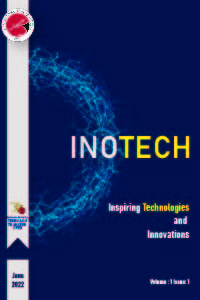Efficiency of Ensemble Learning Algorithms in the Analysis of Effects of Covid-19 Pandemic on Electricity Consumption in Turkey
Öz
The COVID-19 pandemic associated with the lockdown measures caused an extraordinary impact on the economies of all countries in the world. Under lockdown, dramatic reductions in industry and services resulted in electricity demand dropping to Sunday levels, though higher domestic use yielded a relatively small partial offset. In this study, we analyzed overall electricity consumption in Turkey starting from pre-COVID days until now to illustrate the pandemic's effects on consumption. For this purpose, we built an ensemble machine learning model for the analysis. Findings revealed that the proposed boosting (AdaBoost) ensemble algorithm (RMSE: 41848.7, MAE: 18574.3, R2 :0.89) is a significant contributory factor in the analysis of data related to electricity consumption. Results also show that boosting (AdaBoost) ensemble learning algorithm is more preferable in the use of energy-related data than the bagging (random forest) and single-based algorithms (deep neural networks).
Anahtar Kelimeler
Ensemble Learning Algorithms Adaboost Electricity Consumption Covid-19 Pandemic
Kaynakça
- Bashawyah, D. A., & Qaisar, S. M. (2021). Machine Learning Based Short-Term Load Forecasting for Smart Meter Energy Consumption Data in London Households, 99–102. https://doi.org/10.1109/elit53502.2021.9501104
- Chicco, D., Warrens, M. J., & Jurman, G. (2021). No Title. PeerJ Computer Science, 5. EPIAS. (n.d.). EPIAS. Retrieved February 1, 2022, from https://seffaflik.epias.com.tr/transparency/tuketim/tuketici-bilgisi/tuketim-miktarlari.xhtml
- Fayaz, M. (n.d.). Prediction of Energy Consumption in the Buildings Using Multi-Layer Perceptron and Random Forest. International Journal of Advanced Science and Technology, 101, 13–22.
- González-Briones, A., Hernandez, G., Corchado, J. M., Omatu, S., & Mohamad, M. S. (2019). Machine Learning Models for Electricity Consumption Forecasting: A Review. 2nd International Conference on Computer Applications and Information Security, ICCAIS 2019. https://doi.org/10.1109/CAIS.2019.8769508
- Nallathambi, S., & Ramasamy, K. (2017). Prediction of electricity consumption based on DT and RF: An application on USA country power consumption. Proceedings - 2017 IEEE International Conference on Electrical, Instrumentation and Communication Engineering, ICEICE 2017, 2017-Decem(1), 1–7. https://doi.org/10.1109/ICEICE.2017.8191939
- Qu, Z., Liu, H., Wang, Z., Xu, J., Zhang, P., & Zeng, H. (2021). Energy & Buildings A combined genetic optimization with AdaBoost ensemble model for anomaly detection in buildings electricity consumption. Energy & Buildings, 248, 111193. https://doi.org/10.1016/j.enbuild.2021.111193
- Sarker, I. H. (2021). Machine Learning: Algorithms, Real-World Applications and Research Directions. SN Computer Science, 2(3), 160. https://doi.org/10.1007/s42979-021-00592-x
- Shaikh, A., & Namdeo, V. (2021). Unerstanding Machine Learning Approach on Various Algorithms: A Case Study Implementation. 2021 6th International Conference for Convergence in Technology, I2CT 2021, 2–6. https://doi.org/10.1109/I2CT51068.2021.9418166
Öz
Kaynakça
- Bashawyah, D. A., & Qaisar, S. M. (2021). Machine Learning Based Short-Term Load Forecasting for Smart Meter Energy Consumption Data in London Households, 99–102. https://doi.org/10.1109/elit53502.2021.9501104
- Chicco, D., Warrens, M. J., & Jurman, G. (2021). No Title. PeerJ Computer Science, 5. EPIAS. (n.d.). EPIAS. Retrieved February 1, 2022, from https://seffaflik.epias.com.tr/transparency/tuketim/tuketici-bilgisi/tuketim-miktarlari.xhtml
- Fayaz, M. (n.d.). Prediction of Energy Consumption in the Buildings Using Multi-Layer Perceptron and Random Forest. International Journal of Advanced Science and Technology, 101, 13–22.
- González-Briones, A., Hernandez, G., Corchado, J. M., Omatu, S., & Mohamad, M. S. (2019). Machine Learning Models for Electricity Consumption Forecasting: A Review. 2nd International Conference on Computer Applications and Information Security, ICCAIS 2019. https://doi.org/10.1109/CAIS.2019.8769508
- Nallathambi, S., & Ramasamy, K. (2017). Prediction of electricity consumption based on DT and RF: An application on USA country power consumption. Proceedings - 2017 IEEE International Conference on Electrical, Instrumentation and Communication Engineering, ICEICE 2017, 2017-Decem(1), 1–7. https://doi.org/10.1109/ICEICE.2017.8191939
- Qu, Z., Liu, H., Wang, Z., Xu, J., Zhang, P., & Zeng, H. (2021). Energy & Buildings A combined genetic optimization with AdaBoost ensemble model for anomaly detection in buildings electricity consumption. Energy & Buildings, 248, 111193. https://doi.org/10.1016/j.enbuild.2021.111193
- Sarker, I. H. (2021). Machine Learning: Algorithms, Real-World Applications and Research Directions. SN Computer Science, 2(3), 160. https://doi.org/10.1007/s42979-021-00592-x
- Shaikh, A., & Namdeo, V. (2021). Unerstanding Machine Learning Approach on Various Algorithms: A Case Study Implementation. 2021 6th International Conference for Convergence in Technology, I2CT 2021, 2–6. https://doi.org/10.1109/I2CT51068.2021.9418166
Ayrıntılar
| Birincil Dil | İngilizce |
|---|---|
| Konular | Mühendislik |
| Bölüm | Research Articles |
| Yazarlar | |
| Erken Görünüm Tarihi | 30 Haziran 2022 |
| Yayımlanma Tarihi | 30 Haziran 2022 |
| Gönderilme Tarihi | 16 Mart 2022 |
| Yayımlandığı Sayı | Yıl 2022 Cilt: 1 Sayı: 1 |
Dergimiz 2024 Yılı Ocak ayı itibariyle artık İngilizce ve Türkçe yayınları kabul etmeye başlamıştır. Türkçe yayınlar İngilizce Özet içerecek şekilde kabul edilecektir. Yazım Kuralları menüsünden Tam Metin yazım şablonunu indirebilirsiniz.


